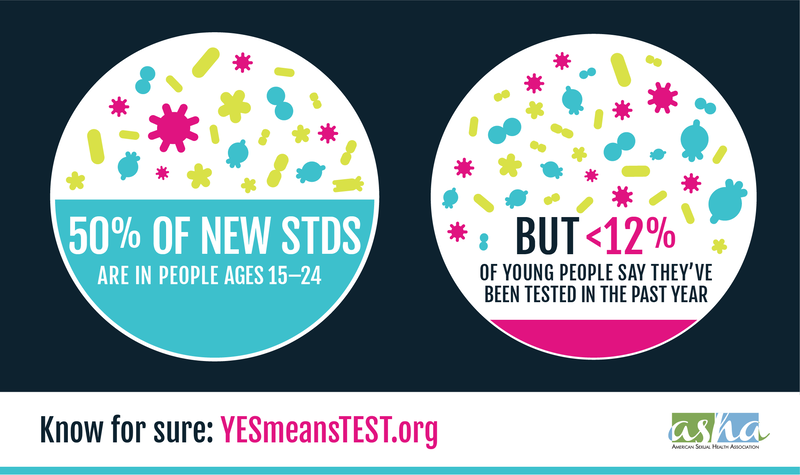Respect yourself and others — be careful and get tested

Apr. 28, 2021
By Mary Wade Burnside
In a humorous video created to educate young people on the importance of getting tested for sexually transmitted diseases, one woman told the host that she actually gets checked regularly.
“That sounds sexy,” the host replied. “’She respects herself.’ That’s an attractive quality.”
Of course, one thing that doesn’t sound sexy is STDs. And discussing the importance of getting STD tested is not exactly office water cooler talk. But maybe it should be. That stigma and embarrassment helps contribute to statistics such as these:
• Individuals ages 15-24 account for half of all new STD infections.
• STD rates continue to climb. In 2019, 1.8 million cases of chlamydia were diagnosed, up 19% since 2015.
• There were also 626,392 gonorrhea cases diagnosed in 2019, up 56% since 2015.
• And the 129,815 syphilis cases diagnosed might not seem like a lot, but that figure was up an astonishing 74% since 2015. And sadly, the incidence of congenital syphilis — when a mother passes the infection on to her baby — was up 279% in 2019 from 2015.
What can happen if these STDs go untreated? They will keep spreading, of course. And those who get them can suffer some serious consequences if they are not treated early.
Syphilis is a great example of why testing is so important. Primary syphilis symptoms might be overlooked by an individual, but it’s curable with antibiotics. Tertiary syphilis can lead to organ damage and even death.
Also, untreated chlamydia can cause serious damage to a woman’s reproductive system, making it difficult or impossible to have children. Chlamydia can also cause a potentially fatal ectopic pregnancy and be passed on to a baby during childbirth.
Untreated gonorrhea can also cause health problems in both men and women. Having it also increases the chances of getting HIV, the virus that can lead to AIDS.
And you may have heard Kanawha County currently has what the Centers for Disease Control and Prevention’s “most concerning” HIV outbreak in the United States. Once again, 35 cases might not seem like a lot. But it used to be one or two cases a year. Now the figure mirrors that of New York City, which has a population of 8.4 million people, compared to 1.8 million in all of West Virginia.
April is STD Awareness Month and, coincidentally, Monongalia County Health Department’s Clinical Services has just expanded its hours for free STD testing and treatment.
Anyone — and we mean anyone — can make an appointment to get tested for chlamydia, gonorrhea, syphilis, HIV, hepatitis B and hepatitis C by one of our friendly, non-judgmental nurses at MCHD Clinical Services.
Remember, prevention is the first goal. That includes using condoms and using them correctly. Keep in mind that alcohol and drugs lower inhibitions and can cause individuals to make decisions they might regret later, or at least not be as careful as they could be.
Then there is testing. The CDC offers recommendations for when and how often to test for STDs.
In general, sexually active people want to get tested at least once for STDs; but there are some individuals who should consider doing it more often. And everyone should do it between sexual relationships. “Like a reset, a sorbet between courses,” as our video host says.
Call 304-598-5119 for a free testing appointment. We can’t give you a smoothie, but we can provide some peace of mind.
And in the meantime, realize that there is another way to respect yourself and others. If you haven't already, get a COVID-19 vaccine. There will be a walk-in clinic, no appointment necessary, at the Greater Monongalia County COVID-19 Vaccine Clinic from 8 a.m. to 12:30 p.m. Saturday at the old Sears building at the Morgantown Mall.
If you want to get a vaccine on a different day, you can go to Vaccine.WVUMedicine.org or call 833-795-SHOT (833-795-7468).
And because COVID-19 can be asymptomatic, or infectious before you develop symptoms, you might want to consider getting tested too. Testing takes place at the WVU Rec Center from 9-11 a.m. Mondays and Fridays.
Mary Wade Burnside is the public information officer at Monongalia County Health Department.